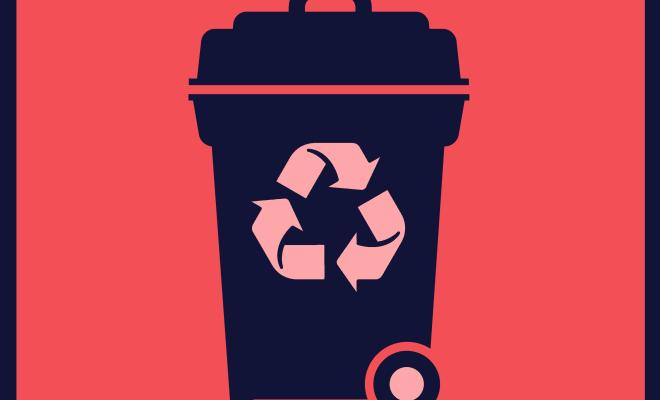20 Sep 2024
How is Action 44 tackling the climate crisis?
Food and farming are significant contributors to the climate and ecological emergencies but don't always feature in councils’ Climate Action Plans. School food is important because this is the largest area of procurement for most councils, and an opportunity to help give children a better diet.
Leeds City Council has been helping schools lower their emissions, with a range of measures engaging school leaders and students.
Lower-carbon meals
This includes working to halve the carbon footprint of the meals it serves by 2030. To do this, the council has committed to:
- buy local, serve local – source food from producers and suppliers based in Yorkshire and the surrounding counties to cut food miles.
- ban air-freighted imports – procure no food transported by air.
- review menus to reduce meat and dairy and give catering staff the data to easily compare the carbon footprints of meals, and adjust them accordingly.
- establish a research partnership with the Consumer Data Research Centre at the University of Leeds, to better understand the impact of the food it serves.
The plan was announced in September 2021 and builds on progress made on influencing schools to switch to low-carbon menus. In January 2020, 2 meat-free days a week were made available in 182 primary schools served by the council’s provider, Catering Leeds.
The new Planet Friendly Menus use more plant protein and less meat on non-vegetarian days to reduce the proportion of meat in the meals. Vegan options have been expanded across the board, and menus feature lots of seasonal fruit. Menus exceed the National School Food Standards and meet the Bronze Food For Life accreditation.
Catering Leeds continues working to reduce the carbon footprint of school meals. It’s hoping that the new menu cycle, started in September 2022, will see a further reduction in the average carbon footprint of meals.
Catering Leeds is also engaging several schools that’ve expressed an interest in offering more vegan options. It’ll work with the schools to explore this further. Going forwards, Catering Leeds will look to consider ways to further reduce food waste in its operations.
Carbon calculator
Catering Leeds is currently trialling the use of a carbon calculator tool for school menus. The aim is to highlight the menu items with the lowest carbon footprint and to raise awareness of how carbon emissions differ between meals to enable students to make more informed decisions about what they eat. If successful, the council is hoping to roll out this approach to more council-catered cafés and food outlets.
The carbon calculator was developed by the Consumer Data Research Centre (CDRC) at the University of Leeds. Alongside the tool, the CDRC has developed interactive games and lesson plans aimed at primary school children to improve their understanding of food sustainability and where the carbon footprint of food comes from.
The lessons equip children with the knowledge to make informed decisions about their diets, with a game called Planet Plates and resources that highlight the impacts of food choices. The aims of the project mirror the independent National Food Strategy’s attempts to create a fairer and more sustainable food system, providing knowledge about how to have healthy and affordable food with a lower carbon footprint for all families.
Leeds Trinity University food challenge
In May 2022 Leeds City Council, alongside the CDRC and Rethink Food, took part in Leeds Trinity University’s Professional Challenge. The Challenge was for first-year students to participate in as part of their course. Students chose one of 3 topics and completed a workshop and essay based around it. Through 3 interactive activities, the workshop educated and challenged students to think about where their food comes from, the type of foods they eat and how much food they waste.
Leeds Food Strategy
The council is preparing to publish and consult on Leeds' first citywide Food Strategy. The strategy sets out its vision for how it produces, consumes and disposes of food across the local authority district.
Leeds will work towards its vision by focusing on 3 core missions, which have been designed to complement the council’s Best City Ambition while also demonstrating how Leeds will work collaboratively to support the aims of the Government Food Strategy and independent National Food Strategy:
- Health and wellbeing – helping people to eat a safe, healthy and balanced diet to improve Leeds’ health and wellbeing.
- Food security and economy – working to give everyone in Leeds access to nutritious food as part of a diverse, inclusive and vibrant food economy.
- Sustainability and resilience – ensuring Leeds’ food system is fit for the future and supports its Climate Action Plan.
The council will consult with the public and other stakeholders on the draft Leeds Food Strategy.
What impact has the project had?
Impacts of changing meals
A plant-based school meal generates, on average, 75% less greenhouse gas emissions than a meat-based meal. Leeds primary schools can save up to 75 tonnes of carbon by making the meal switch.
The new vegetarian and vegan options have been well-received by children, contrary to the popular idea that children are averse to healthier, greener food. Due to disruption caused by the coronavirus pandemic, detailed monitoring and surveying haven't been possible, but anecdotal feedback from headteachers and children has been positive so far.
Impacts of wider climate engagement with schools
Changing menus is only one element of extensive climate engagement with schools by Leeds City Council. It's also:
- supported active travel by installing 14 school streets, offering Bikeability training and funding scooters.
- used government funding to decarbonise 38 publicly-owned buildings including schools.
- funded Leeds Uniform Exchange to help parents and cut waste by recycling old school uniforms.
What made this work?
Recognising multiple benefits
The original motivation for the revised menus was improving children’s health, but after the council declared a climate emergency in 2019 it realised that cutting meat and dairy would also help cut emissions.
Implementing healthier, more climate-friendly school menus was also necessary to help the council on its path to fulfilling 2 key pledges. The first is to become a Child Friendly City, where every child and young person can be healthy, happy and safe. The second is the Glasgow Food and Climate Declaration, to which Leeds and 62 other cities worldwide are signatories. This commits signatories to pioneering integrated food policies to drive positive food system change, putting food at the heart of sub-national climate emergency responses.
Support from residents
The meat-free idea received strong praise from many residents. During the 2019 Big Leeds Climate Conversation, almost 90% of respondents supported the proposal to reduce meat in school meals, so the council had a strong mandate to justify the decision and evidence to refer back to in the case of objections.
Co-design with schools
Catering Leeds took care to ensure that the new menus were well designed by taking a consultative approach, communicating the benefits and listening to schools’ concerns. Schoolchildren were invited to join discussions about the changes and voice their opinions. 95% of those surveyed said they wouldn't mind having meat-free days at school to reduce their carbon footprints. A gradual introduction has also eased the switch in Leeds.
Expert input
Catering Leeds also consulted with ProVeg, an international food awareness organisation responsible for swapping 2.3 million meals per year in the UK to more climate-friendly alternatives.
What resources were needed?
No direct costs were incurred by the council or Catering Leeds when switching menus, as the change was implemented using existing resources.
Leeds City Council has appointed a sitting councillor as its very own dedicated Food Champion, who'll continue to lead on low-carbon food procurement across the council and its associated public sector organisations.
Lessons from Leeds
Allow time to bring schools on board
Leeds schools weren't required to make the switch. Schools are able to choose a different provider or request a different menu from Catering Leeds should they wish. The new menus aren't compulsory, only strongly recommended by the council. As a result, the time taken to convince each school to make the switch varies, and not all those serviced by Catering Leeds opt in. The pandemic also significantly disrupted the roll-out of the new menu.
Balancing views and sticking to the plan
Despite being supported by many, removing meat options from schools is still a controversial move. The council faced criticism from a minority of residents regarding the changes and the removal of a meat choice on certain days (although this wasn't a consensus view). Parents' concerns must be anticipated and accounted for – other councils might consider seeking parents' input into the consultation process.
Councils will be facing the opposite pressure from campaign groups. For example, in March 2021 Animal Rebellion launched its Plant Based Schools campaign, which now has 40 groups around the country. Its demands are for schools to have 2 fully vegetarian days a week (like Leeds) and to serve only plant-based meals at council events. It plans to target councils that've declared a climate emergency.
Leeds stuck to its plan, which is an important part of tackling climate emissions, but it ensured that it engaged with schools and residents to bring as many of them as possible on board.
Going further within government guidelines
Current central government School Food Standards legally require schools to serve meat 3 days a week. They also have to serve oily fish at least once every 3 weeks, and dairy every day – both of which also impact the extent to which state schools can go further. To expand vegetarian and vegan-only options, Leeds has taken the approach of reducing the amount of meat in its meat-based dishes, which is within the guidelines, but councils should also be proactive in seeking changes to the government guidelines.
The School Food Standards don't apply to academies or free schools established between September 2010 and May 2014, so there may be more scope for councils to influence these schools to go further – although many work to these standards anyway.
Friends of the Earth, Sustain, Eating Better and others have produced a campaigner guide on local authorities, food and climate, which will help campaigners wishing to influence their council and should also be useful to councils wishing to include food as a key part of their action on climate.
“Sustainability is really important for so many reasons and it’s something we take seriously. Our food commitments will contribute to the council’s three strategic priorities for Leeds: facilitating inclusive growth by supporting local farmers and food producers; helping to improve the health and wellbeing of our food customers by improving the nutrition and quality of food served, and reducing our environmental impact in support of our ambition to become the first carbon-neutral city in the UK.”
Councillor Helen Hayden, Executive Member for Infrastructure and Climate at Leeds City Council.
Useful information
Friends of the Earth and the Eating Better alliance have produced resources for local councils and community groups, to guide them on how to serve and source healthier, more sustainable meals:
- Serving Better guide for local councils
- Film telling the inspiring story of Mandeville Primary school in Hackney
- Campaigner guide to help community groups engage with their council.
Related projects
We've found some examples of other council activity on this topic.
- Enfield Council is committed to using only plant-based catering for events.
- Bristol City Council has a 2030 goal that “people in Bristol will consume carbon neutral food and drink”.
Friends of the Earth's view
As with many of these case studies, Leeds City Council has shown that action to cut climate emissions delivers other benefits, in this case healthier diets for school children.
The council’s proactive approach to working with schools and children is a good example of how early engagement can help ensure success, even when the proposals are controversial.
More councils need to include food in their Climate Action Plans, from more plant-based options in schools to cutting food waste (Action 37 of the Climate Action Plan).
Friends of the Earth is showcasing specific examples of good practice in tackling climate change, but that doesn’t mean we endorse everything that a council is doing.
This case study was produced by Ashden and Friends of the Earth. It was originally published in February 2022 and was last updated in November 2022. Any references to national policy in this case study relate to policy under the previous government and reflect the policy context in which the council was operating at the time.




